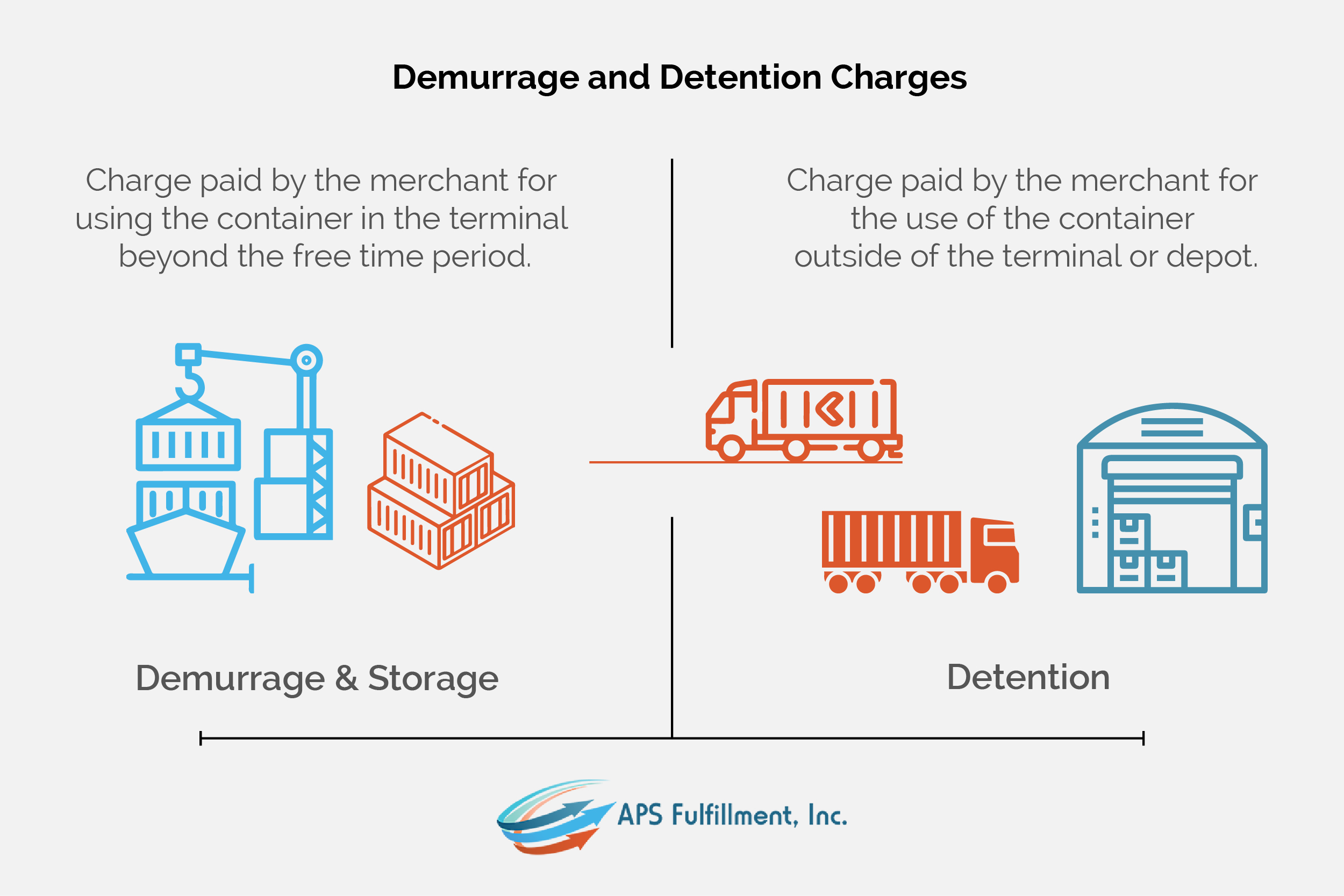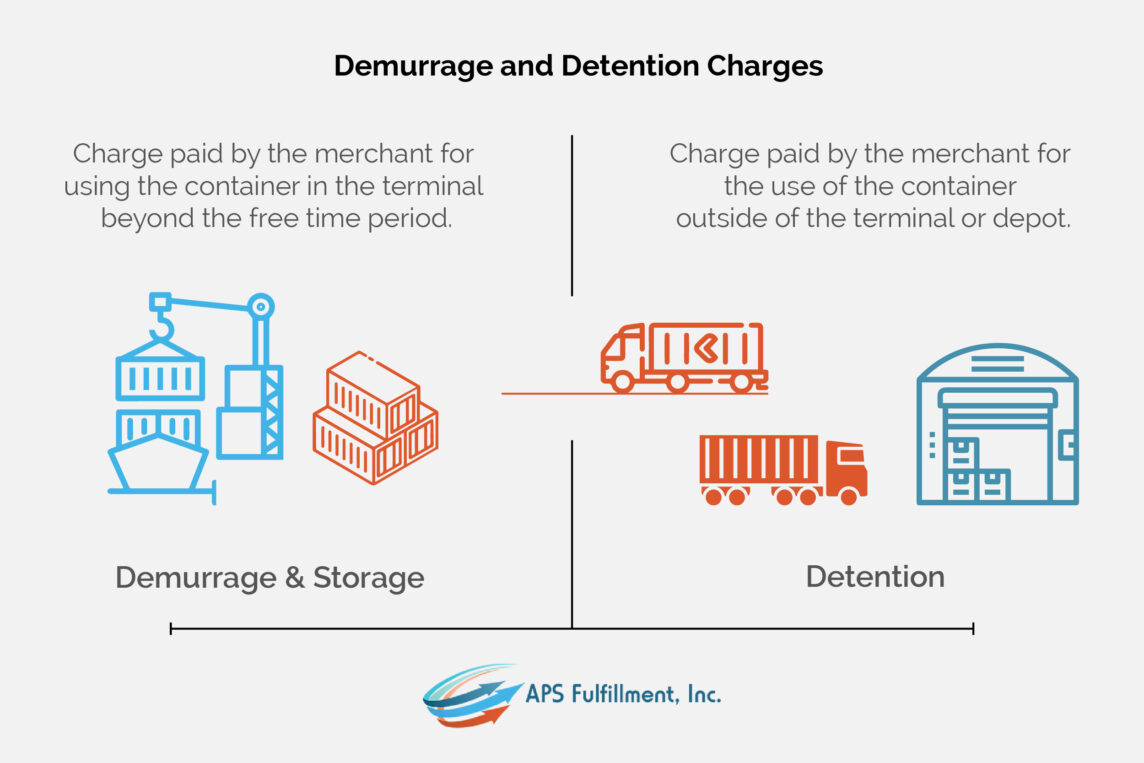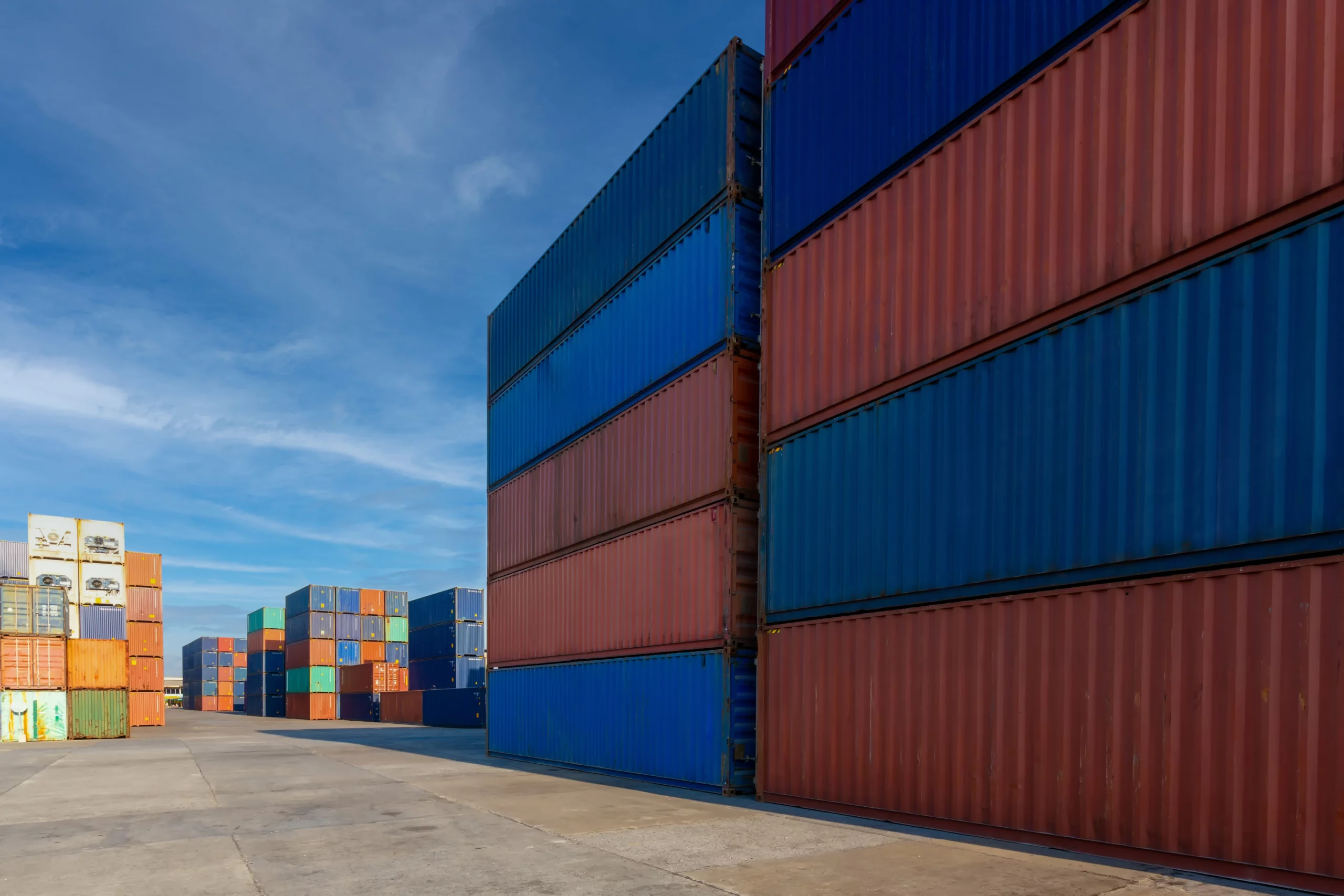
When importing or exporting goods, it’s important to be aware of the charges that may apply if your cargo is delayed. These charges are known as demurrage, detention, and storage fees. In this article, we will provide an overview of these charges and discuss how a customs broker can help you avoid them.
What Is Demurrage?
Demurrage is a charge that a shipper incurs when a shipment remains at a port beyond the allotted time for loading or unloading. The port provides a certain number of “free” days that a shipment can stay, but after that, it will begin charging the shipper each day.
Demurrage fees are intended to compensate the ship owner or operator for delays caused by the shipper. This is also done so that ports are not congested and so that freight does not oversit, thus causing even more issues. In some instances, demurrage fees can exceed the value of the container. When demurrage charges are incurred, they must be paid in full before the shipment can be released.
What Is Detention?
Detention applies to the container itself and the time a carrier holds cargo after it has been loaded or unloaded. There are a certain number of days in which a shipper is allowed to take the container to their warehouse of choosing and empty it. If those days exceed the allotted amount, detention fees are applied per day per container.
This is to ensure containers are not stolen and that they are returned, as well as to make sure a container does not miss its sailing time.
What Are Storage Charges?
Storage charges happen when the port stores the goods in its own warehouse or facilities. In some cases, these charges may also apply if there is a delay in loading or unloading a shipment. Storage charges are typically assessed on a per-day basis, and the amount will vary depending on the size and type of cargo being stored.
Unlike demurrage, which is charged by the shipping line, storage charges are charged by the terminal/port. Both charges can be incurred simultaneously. Storage charges can add up quickly, so it is important to factor them into your overall shipping costs.
What Causes Demurrage?
Failure to retrieve products from the port within the timeframe given will cause demurrage to apply. Demurrage can be caused by a number of factors including bad weather, port congestion, and mechanical issues. In some cases, it may also be levied if the shipper fails to load or unload the cargo within the allotted time. After the free days are up, customers must retrieve their products or incur demurrage.
How Can I Avoid Demurrage Fees?
Keep an eye on timelines. In order to avoid demurrage charges, shippers must schedule their shipments carefully and ensure that their cargo is ready for loading or unloading within the allotted timeframe. You will be updated accordingly on the ship’s status, as well as its delivery time and when it passes customs. It is paramount to make sure that once it passes customs, trucking is sent to retrieve it, or every day the cost will increase.
Be vigilant on the incoming arrival of goods. Ensure all paperwork is submitted to the freight forwarder and customs broker ahead of time. Make sure to be available for any phone call clarification or payments that need to be made.
What Role Do Customs Brokers Play?
Customs brokers are your liaison to government agencies, port authorities, shipping lines, and trucking services. They are there to help make sure all the documents are in order and that customs, duty, tax, demurrage, storage, trucking, and other payments are paid. They also provide the following benefits:
Facilitate the Customs Clearance Process
Brokers need to be knowledgeable about all possible applicable fees, ensure all forms are submitted ahead of time, and be aware of incoming shipments and associated wait/pickup times (demurrage, storage, etc.)
Correctly Identify Goods
Customs brokers should be also aware of all necessary FDA and port regulations for incoming shipments. For instance, tobacco, food, or alcohol all require certain specifications such as labeling on the outside of the containers.
Help with Paperwork
Customs brokers can help you with the BOL (bill of lading), which is the legal document that needs to be signed by the exporter, shipping line, and/or importer. They can also help you with the commercial invoice and the shipping bill/bill of export.
Make Clearance of Shipments Easy
By working with a customs broker, you don’t have to concern yourself or be on the edge of your seat waiting for the potential shipment and possibly missing/incurring additional fees.
Contact an Expert at APS Fulfillment, Inc. to Help You Connect with the Right Broker
At APS Fulfillment, Inc., we can facilitate connecting our clients with a customs broker and make sure they have the best ones suited for them. In addition, we also have a quick turnaround time for container unloading, so that our clients don’t get hit with demurrage, detention, or storage fees.
We offer full-service e-commerce fulfillment out of Miami that includes state-of-the-art warehouse management software (WMS). We make inventory management and goods tracking easy and simple. We’ll also support your business and automate the warehousing, prepping, shipping, picking, and packing of your orders!
Get in touch with us today and one of our consultants will tailor a fulfillment plan that will help grow your business. To book a consultation, call (954) 582-7450 or email [email protected].







